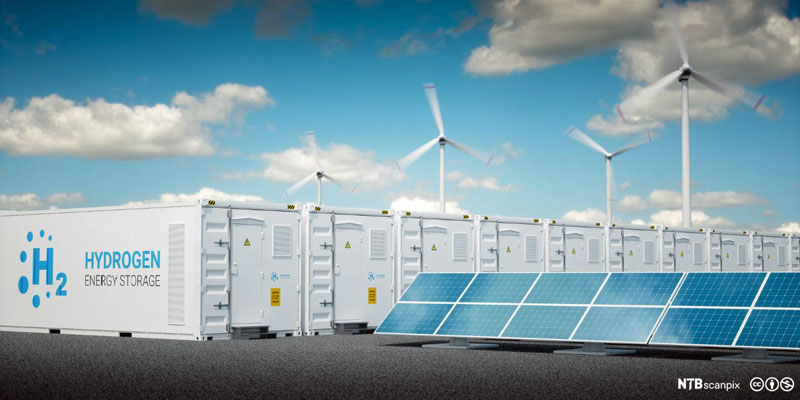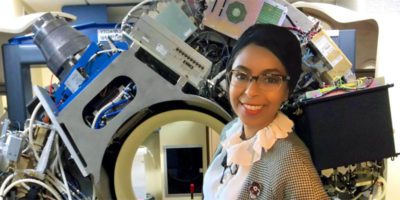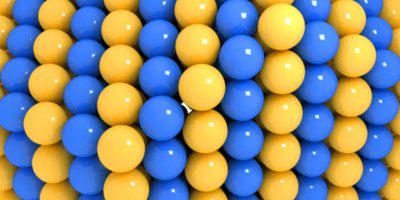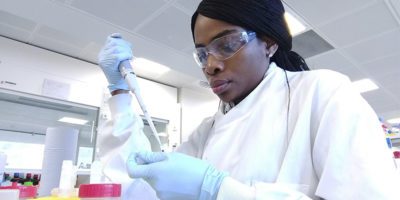Paula Nkulikiyinka is a Soapbox Science Milton Keynes speaker and an energy and power PhD research student at Cranfield University. Paula has already worked in the emissions control industry, construction chemistry industry and briefly the oil and gas industry. Her doctoral degree focuses on the use of artificial intelligence (AI) to optimise the production of hydrogen with carbon capture and storage.
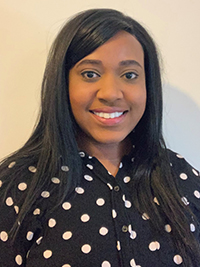
Paula is speaking at Soapbox Science Milton Keynes, which takes place from 14th to 16th October 2021. This will be hosted via a Zoom webinar. The title of her talk is: “The robots are taking over! A quick guide to AI.”
Going back to education, my best career move
I received my MSc in advanced chemical engineering from Imperial College London in 2017 and my BEng with honours in chemical engineering with a year in industry from Aston University in 2016.
I had always been passionate about science and maths from an early age, and as I grew up, I wanted to combine my two passions into a career that could help change the world – the energy industry.
I started off in the emissions control industry when I graduated from my master’s degree, but I felt like I could always do more and I could use my love of learning and academia to embark on a more integral career in energy, so I joined Cranfield University in June 2019 to pursue a PhD and I feel like it was my best career move to date.
From lab to desk: Shifting to machine learning and coding during lockdown
My day-to-day activities vary, and due to the pandemic, I’ve had to change a lot of what I would normally do.
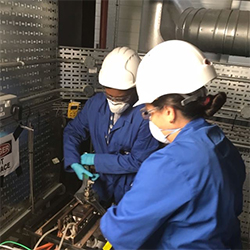
Prior to March 2020, I would spend a lot of time in the lab, building a bench-scale reactor that can produce hydrogen via the sorption enhanced steam methane reforming (SE-SMR) process. This consisted of designing, sizing and procuring all the materials and then constructing it in the lab, alongside my colleague Serap Ozmen.
The work is part of an international collaboration led by Cranfield University to examine the potential for the low-carbon production of hydrogen from natural gas, which could substantially reduce greenhouse gas emissions.
Once the lockdown hit, I became desk-based working from home, and I focused more on the machine learning and coding element of my PhD. So instead of starting off with experiments, I swapped around my activities and I will be lab-based for most of next year, as opposed to now.
I currently spend a lot of time reading up on literature as the machine learning field is fast-moving and there are new studies very often. I’ve also had to learn how to use new pieces of software and programming tools, such as Python (a programming language that lets you work more quickly and integrate your systems more effectively) and CASTEP (a leading tool used in other studies modelling the effect of carbon adsorbent materials).
A lot of my coding experience is self-taught and trial and error, as I like to learn as I go, and I enjoy seeing all my hard work result in a successful working code!
Robots are taking over: Carrying out an experiment without actually doing it!
My talk for Soapbox Science will be about how artificial intelligence (AI), or more specifically machine learning (ML), can be applied to the energy industry.
I titled it “The robots are taking over! A quick guide to AI” as a way to keep it fun and light-hearted for a younger audience, as it can get quite technical. It’s essentially going to discuss how humans can use software and machines, to create certain codes that are able to conduct tasks much quicker, and more accurately than a human can
An example of something I’ve managed to code is a way to predict how a combined sorbent catalyst material (CSCM) can behave at certain experimental conditions, without actually conducting the experiments.
This can be a helpful tool to overcome monotonous repetitive experiments and can help reduce research and development time and associated costs when looking at new materials.
Talking about science in simpler terms
I need to do a lot of preparation for my Soapbox talk. I will be preparing by looking at past Soapbox presenters and getting hints and ideas on how a good presentation looks and sounds like. I recently took part in the 3MT® Three Minute Thesis competition, where I spoke about my PhD in three minutes (obviously!).
The feedback I received was that I needed to present my work in a simpler way and provide less technical examples, and more lay terms, as I can get carried away with my research! So, I have taken this on board, and I am ensuring I am able to explain my work in the simplest way possible, whilst still providing enough technical and scientific detail.
I will be practising with my family, as they don’t work in my industry, and hopefully, I can get tips and advice from them as well.
You can be whatever you want, even a ‘girly’ chemical engineer!
Soapbox Science is such a great initiative and had I attended one like this as a child, I feel that my confidence as a young scientist would have been accelerated, as I would’ve seen representation.
Representation is so important in order for young students to feel that the world is their oyster and they can do anything if they apply themselves. Events like this can help open their eyes to industries that had never even occurred to them before.
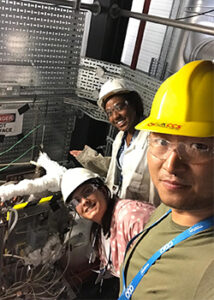
It’s a shame that the events have had to be virtual due to COVID-19, but in a way, one can see the positive side of it as it may have reached a wider audience worldwide, that wouldn’t have attended in person before.
I had initially wanted to take part in the 2019 event, but as I had just started my PhD, I didn’t have the confidence that I would have enough to talk about, and then with 2020, I was just so busy it didn’t even occur to me, but I am so grateful to be a presenter this year as sharing my experience with younger students is something I’m genuinely passionate about.
I love learning and I want to share that enthusiasm and help engage students to gain the same passion for learning that I have!
Sharing a wealth of knowledge
Diversity of thought is crucial in chemical engineering because it’s not a one-size-fits-all science. Sometimes the simplest solution is the answer! As chemical engineers, we are problem solvers. We use chemistry, physics, maths, and often just common sense to come to suitable engineering solutions.
Bringing people to the table with loads of different industrial and academic experiences enriches the types of suggestions and ideas that can be brought forward.
Additionally, it shares a wealth of knowledge. You never want to be amongst people who think just like you or just blindly follow the status quo. Having discussions and even debates within chemical engineering allows you to gain more knowledge yourself and it’s often a great way to learn over just studying books.
Just be confident, as clichéd as that sounds
My advice to women and girls who want to embark on the chemical engineering industry is that you need to be your own biggest supporter. You may face obstacles in this industry, but as long as you have confidence in yourself, there’s nothing you can’t do. You need to think you’re just as capable as anyone else in this field and you’re a worthy chemical engineer in your own right.
A big piece of advice I have that has never failed me is to not be afraid to ask questions and be honest with yourself instead of struggling, with the fear that asking makes you look weak or not good enough. Asking questions can only better your understanding so what’s to lose!?
I’ve even been told to ‘fake it ‘til you make it’ as in, if you exude a sense of confidence and strength, eventually it will just become you. It will be effortless, and you will be able to see your own growth as a chemical engineer.
If you don’t know where to start in the field, I suggest doing your own reading on the type of career you are passionate about. Don’t do anything if it isn’t your genuine passion. Talk to other students, get a mentor, do thorough research and make sure every step you take is one that builds you up as a chemical engineer.
I often look back on how I started out and I used to see some steps I took as setbacks, but now I honestly see every step as a building block to the person I am now, and I don’t regret anything.
Building up when I throw my PhD cap in the air!
I have so many plans going forward! Hopefully, once all restrictions are lifted, I firstly want to be able to validate all my codes experimentally, so, for instance, test and validate the predictions obtained from codes and software, of how a molecule reacts in the lab.
I also want to finally attend conferences internationally, including the IEAGHG summer school in Indonesia, which allows academics working in carbon capture and storage to meet and learn and share knowledge within that field.
I will also be taking part in a 12-week doctoral exchange scheme in Montreal, Canada, where I will be working with a PhD group that focuses on looking at metal-organic frameworks for hydrogen storage, which will be exciting!
I hope to publish more of my research, as a lot of what I’m looking at is novel and the first of its kind, such as my first publication in the journal Energy and AI in November 2020.
Then eventually, once I throw that PhD cap in the air, I think that’s my last graduation ceremony! I hope to return to industry to work in energy consulting or similar, more specifically carbon capture and hydrogen energy, not only because it’s what my PhD is on but it’s a growing and booming industry!
https://www.linkedin.com/in/paula-nkulikiyinka/
https://twitter.com/SoapboxScience
https://twitter.com/CranfieldUni
Main image is licensed under CC BY-ND 2.0.
Title: Energy chain with solar, wind and hydrogen
Licensee: Supplier Shutterstock, Supplier Scanpix
Source: http://www.scanpix.no

